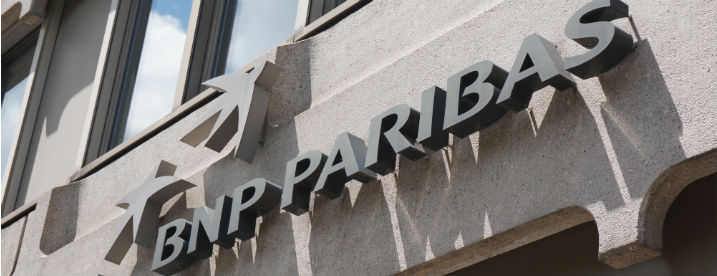
A Few More Get Fired from BNP Paribas
By Grace Zhao, July 2, 2014

A couple weeks ago, we wrote a blog post hoping that discipline would go further up the BNP food chain. Unfortunately, the U.S.-BNP Paribas settlement still ineffectively punishes the French bank.
France’s BNP Paribas has agreed to pay a historically large fine of $9 billion for violating sanctions on Sudan, Iran, and Cuba. At face value, this seems to be a big deal. After all, no bank has ever been fined so much for similar crimes.
Yet yesterday, shares in BNP Paribas rose 4 percent, even after the bank pled guilty to a criminal charge. Moreover, no single person within the bank has been charged specifically with any crimes, allowing those who abused executive power to slip away relatively unnoticed. BNP did fire a few employees. Some left on their own. Others faced demotions and pay cuts, small atonements for the billions of dollars that the bank illegally transferred.
BNP’s chief operating officer, Georges Chodron de Courcel, was at the center of the debacle and simply moved up his already planned retirement after U.S. authorities demanded he leave the bank. Courcel will almost certainly retire in comfort.
Even more ridiculous is the possibility that the $9 billion fine could be tax deductible overseas.
There is no doubt that BNP Paribas is facing a large penalty for its crimes. A $9 billion fine plus a ban on clearing some dollar transactions is hard to ignore. Still, BNP Paribas will carry on in penitence and emerge largely as it was before despite the massive nature of its crimes.
As New York regulator Benjamin Lawsky stated:
In order to deter future offenses, it is important to remember that banks do not commit misconduct — bankers do.
With criminal accountability for those directly involved in the illegal transactions, the culture of shady banking will undoubtedly continue. According to a Financial Times article, banks need to develop a strong “culture of compliance,” and the realistic threat of criminal punishment seems to be a necessary motivation to do so.
As cliché as it may sound, the banking system is in need of a an attitude adjustment. Bankers must be held to a higher standard and need to face appropriate consequences for illegal actions. Evidently, this is an enormous issue to tackle given the consistent precedents of corrupt executives avoiding major punishments for crimes involving billions of dollars. The BNP-U.S. settlement should lead to a call for an expansive “culture change” in banks and greater scrutiny of transactions. We hope that banks, especially BNP and others that have been caught red-handed, will actually follow the rules in the future. But for now, consider this week’s settlement a slap on the wrist for the French bank.
